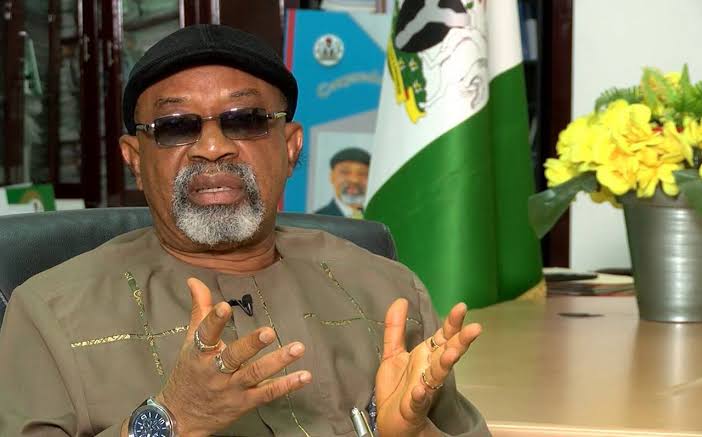The plight of the Nigerian child, once again, caught public attention when Nigerians recently gathered in Abuja to discuss child labour at the National Children Conference. In a keynote address at the event organised to commemorate the 2022 World Day Against Child Labour (WDACL), the Minister of Labour and Employment, Dr Chris Ngige, expressed concern over the high incidence of child labour in the country. He lamented how global estimates of child labour increased from 152 million to 160 million between 2016 and 2020. Ngige said Sub-saharan Africa recorded 19.6 per cent of all African children in child labour, and a possible nine per cent in hazardous work; warning that, “This will certainly have massive implications in the near future.”
Listing government efforts in dealing with the menace, Ngige cited the passage of the Child Rights Act into law which sought to domesticate the United Nations (UN) Convention on the rights of the child, its adoption by about 30 state governments, and the implementation and enforcement of the National Action Plan on Child Labour, Prohibition and Elimination of Forced Labour, Modern Day Slavery and Human Trafficking in Workplaces. He also mentioned the establishment of the National Steering Committee, as well as State Steering Committees and Desk Officers on Child Labour at all levels of government.
- 4 Nigerian, Niger Republic govs meet in Katsina over insecurity
- NIGERIA DAILY: What You Should Know About National Grid Collapse
In her remarks at the event, wife of the president, Aisha Buhari, advocated for a systemic approach and effective policies that would strengthen social protection systems, education, and decent work opportunities for parents and caregivers with a view to addressing the conditions that drive child labour. She called for increased investment in social protection systems and schemes in order to protect Nigerian children against child labour.
In a statement to commemorate the WDACL, the International Federation of Women Lawyers (FIDA) expressed worry over International Labour Organisation (ILO)’s prevalence figure of 15 million children-labourers in Nigeria, which FIDA said, is the highest recorded rate of child labour in West Africa. FIDA said it was concerned that the rate of child labour had not abated in Nigeria in spite of the country’s assent to the UN Convention on the Rights of the Child in 1999, the African Charter on the Rights and Welfare of the Child in 2001, and the Child’s Rights Act in 2003.
June 12 every year is set aside by the UN to mark the WDACL. The theme for this year’s event is ‘Universal Social Protection to End Child Labour’. The UN has warned that the absence of mitigating strategies could see an increase in children engaged in Child Labour by the end of 2022.
A UN report at the beginning of 2020 declared that one in ten children aged 5 and above was involved in child labour worldwide; equivalent to an estimated 160 million children, or 63 million girls and 97 million boys. With its 72 million total population of children-labourers, Africa ranks highest among regions in the percentage of kids in child labour. This is what makes the prevalence figure of an estimated 15 million children-labourers in Nigeria, a staggering indicator. The rights of most Nigerian children are violated, mostly due to poverty, illiteracy, ignorance, polygamy and high demand for cheap labour.
The failure by government to put child labour prevention mechanisms in place tends to suggest a deliberate under-development of future Nigerians. These vulnerable children are also, by the inaction of authorities, exposed to exploitation by non-state actors who manipulate them for selfish political and socio-economic interests. As noted at the 2022 WDACL event by the permanent secretary in the Federal Ministry of Labour and Employment, Ms Chachollum Daju, drivers of child labour are weakened and school enrollment enhanced when social protection programmes that help to reduce family poverty and vulnerability are initiated. Daily Trust therefore encourages government at all levels to fully enforce all sections of the Child Rights Act that seek to eradicate forced labour, modern-day slavery, human trafficking, and the recruitment and use of child soldiers.
To practically end the scourge, government must be proactive in prosecuting and penalising companies, entrepreneurs, individuals and criminal elements that engage the services of children as workers, hawkers or touts. Irresponsible parents whose school-age kids are engaged as children-labourers should be tried for violating the Universal Basic Education (UBE) Act which makes basic education compulsory besides being free. We also believe that there are cases whereby parents and guardians do not know that what their children and wards are engaged in amounts to child labour. Therefore, we call for enlightenment and advocacy programmes to that effect to ensure proper understanding.
It is time to end child labour in Nigeria and all stakeholders must work towards that.

 Join Daily Trust WhatsApp Community For Quick Access To News and Happenings Around You.
Join Daily Trust WhatsApp Community For Quick Access To News and Happenings Around You.


